Now here is a truly rare and amazing discovery today of this cute Cape chameleon. As a child I used to find many more of them in the gardens of suburbia. But this is the first one I've found in years. In fact decades have passed where I simply didn't see them any more. So finding this one right in the back garden of suburbia here on the South Cape coast of Africa is a true rarity.
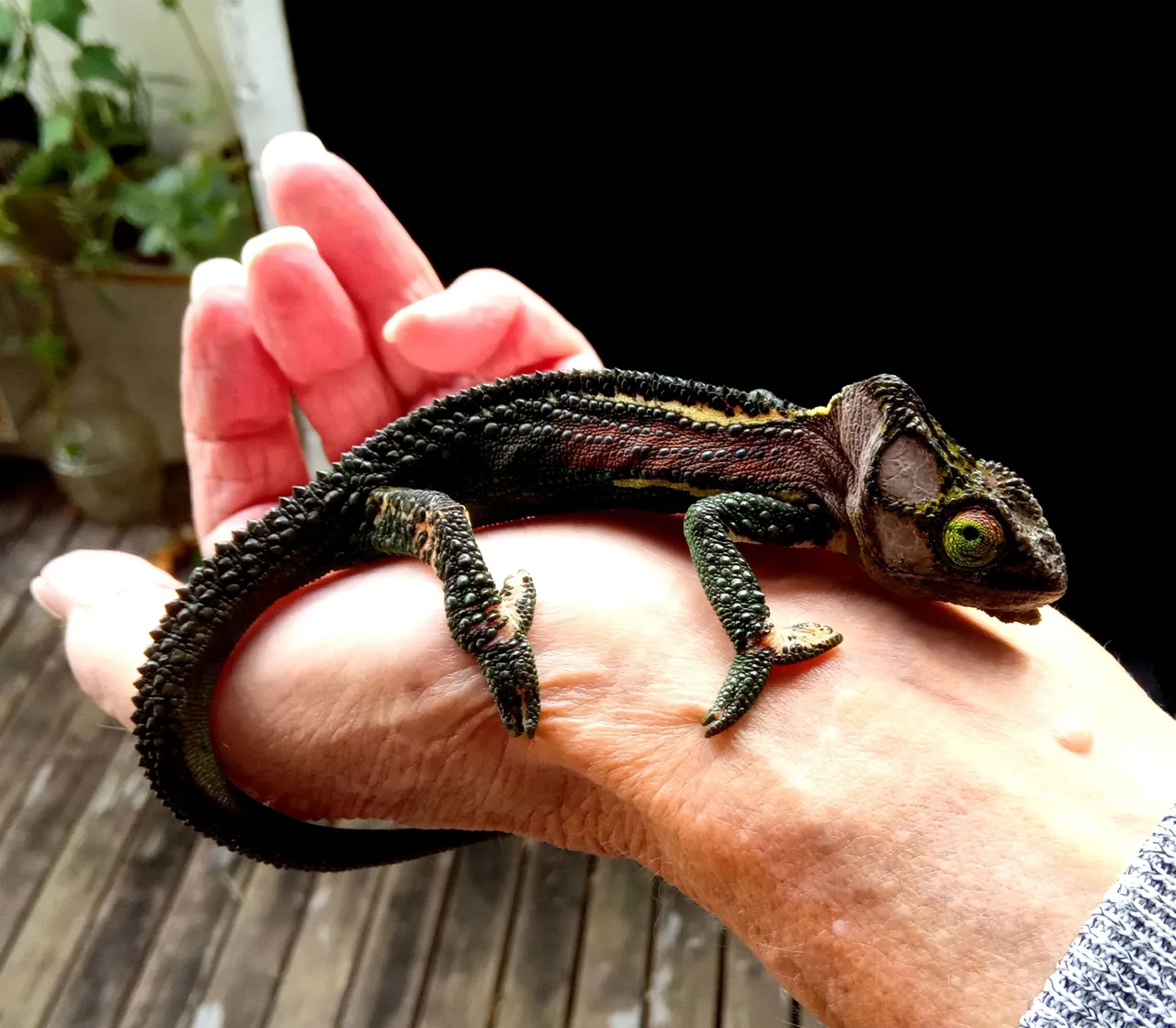
According to the South African National Biodiversity Institute this might be a Cape Dwarf chameleon.
https://www.sanbi.org/animal-of-the-week/cape-dwarf-chameleon/ They are very rare now, and possibly close to endangered. Which is understandable considering that they are extremely slow moving and defenseless. With the growth of towns their habitat has also shrunk.
This reptile really looks like something prehistoric, like a dinosaur, so I'm amazed that they still exist. Like the rhinoceros, they may soon be extinct. Such is the state of life on Earth now. Many more species than usual are going extinct currently. Our biodiversity is shrinking rapidly with human growth.
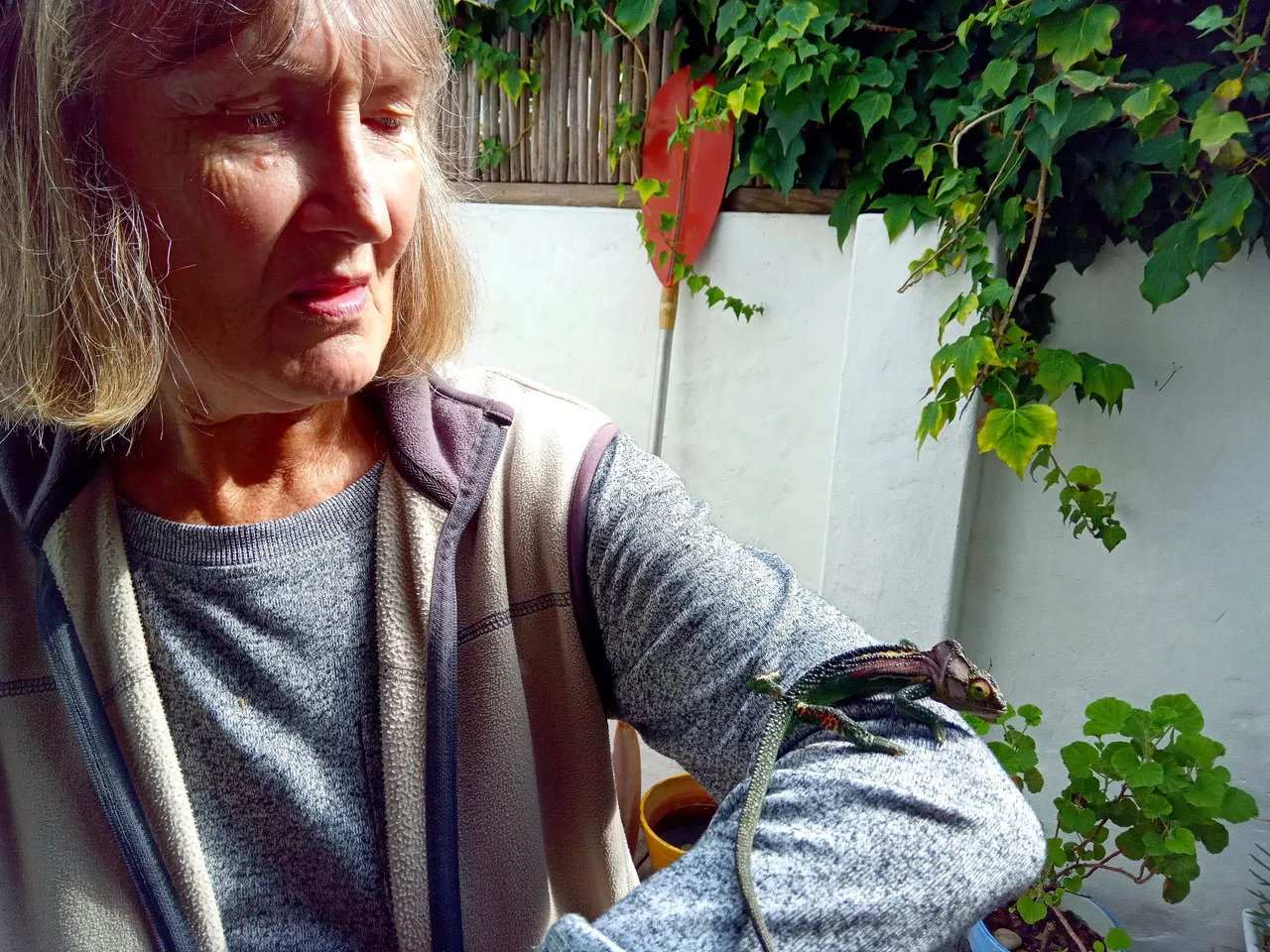
These chameleons are amazing in that they can change color to match their surroundings. The one I found today appears really dark, perhaps trying to absorb more heat, or hide in the shadows. Camouflage is their main strength. Along with a fast tongue which is twice the length of their body and used for catching insects.
Today's discovery of this rare endangered chameleon is definitely one for the record, so I document it here. This may be a once in a decade sighting for me, of this endemic species found only in this region on the south Cape coast of Africa.
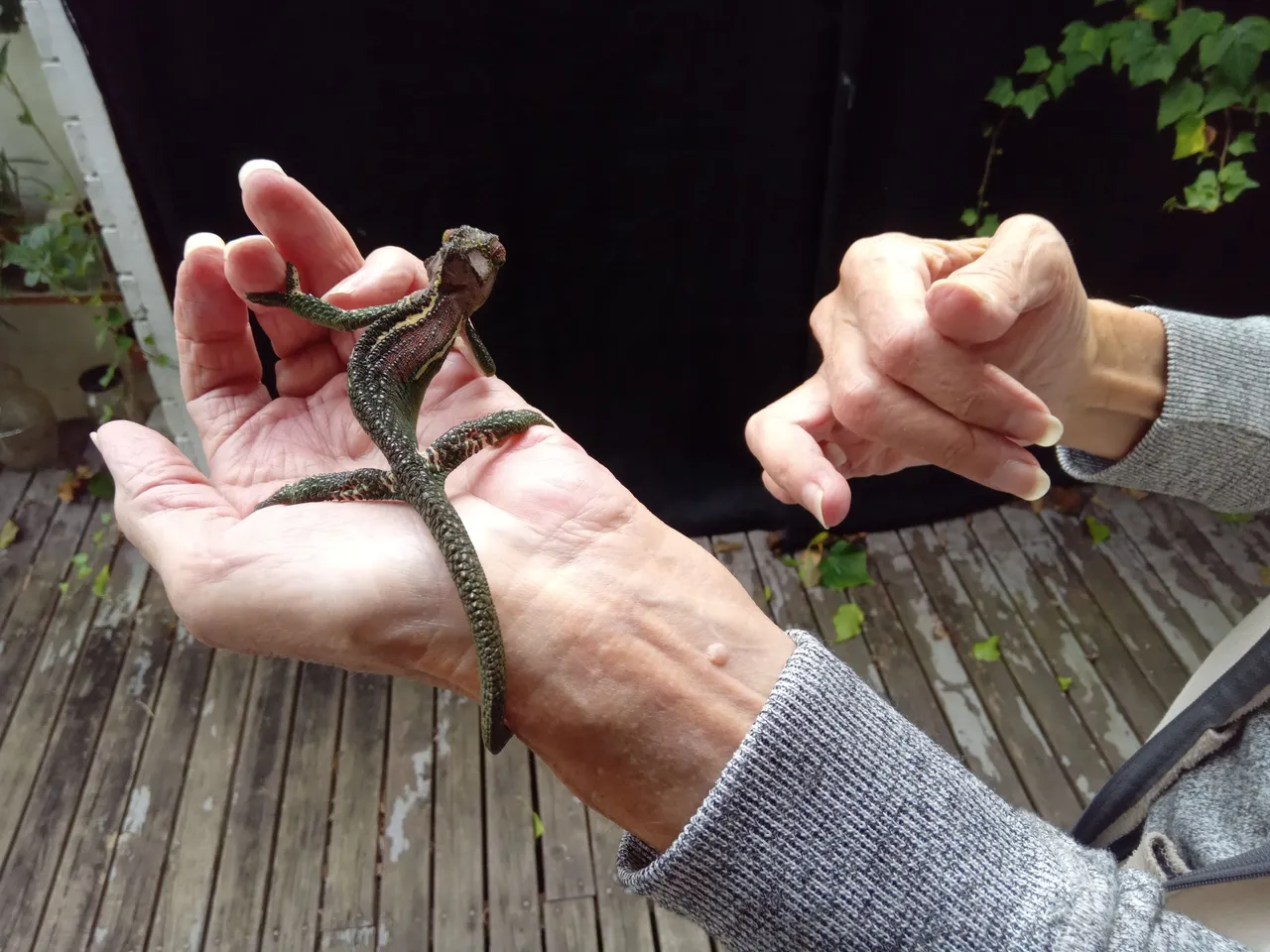
Have you ever seen one of these in real life? Perhaps not, which makes this even more rare, something which will become still more rare with time. The planet loses so many species continually now with each passing year. Perhaps it doesn't matter, although the balance is important of course. With the loss of some species there may be a knock-on effect. Other species may also struggle as a result. Or some may grow too prolific.
Chameleons, for example, eat flies, which might now proliferate due to less predators keeping them in check. Nature always bounces back and balances itself, one way or the other, given enough time. Still, with the massive human impact on the earth and all the various species here, some might be lost forever, as we've already experienced. I'm my lifetime alone, we may have lost more species than ever before.
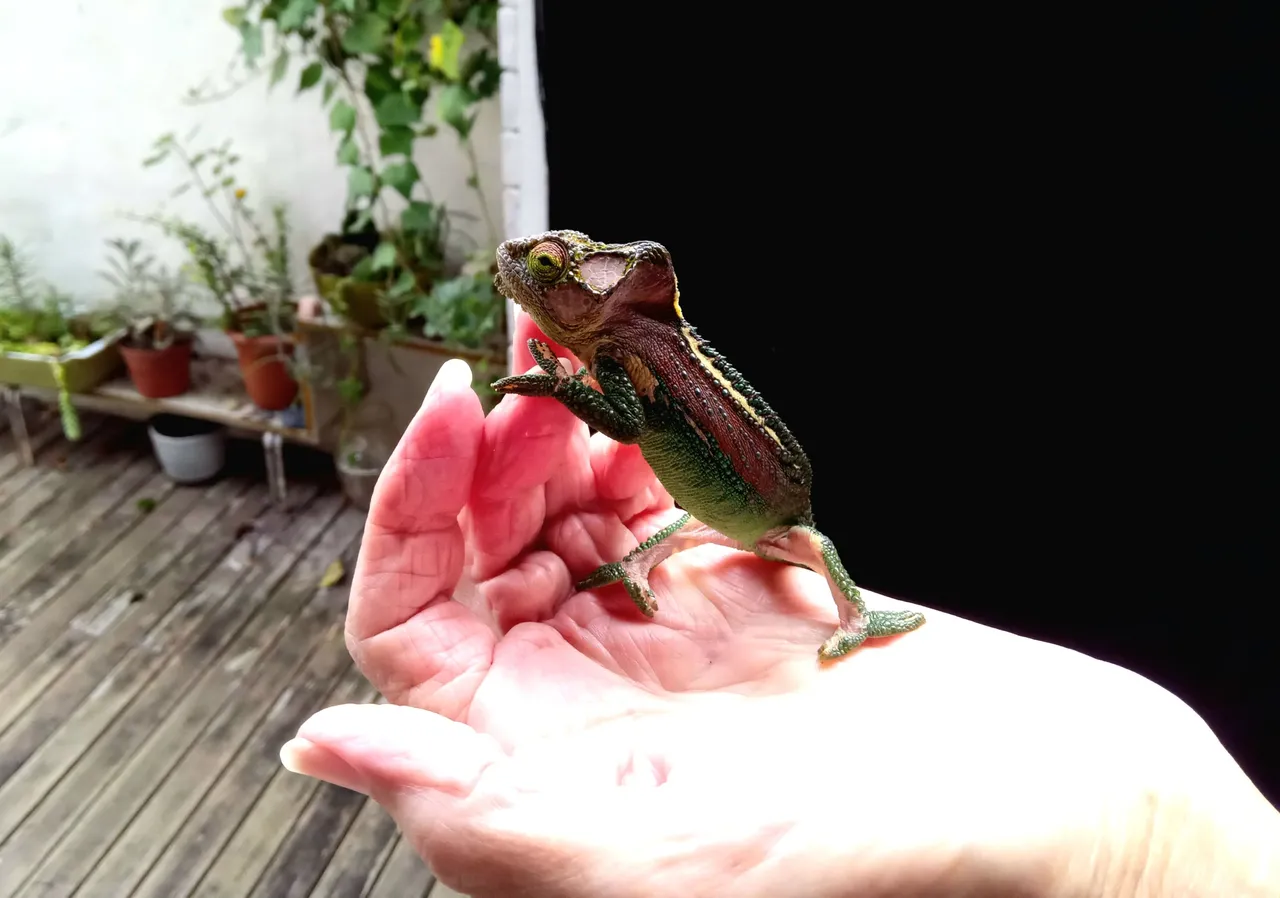
That said, the mass extinctions occur every few million years of thereabouts, and perhaps new species emerge who have adapted to the new climate conditions after the change. Rumors abound of a coming sixth mass extinction which is under way. Certainly this chameleon species probably won't survive, along with other fragile types of flora and fauna, and we here at the Cape have much of them. This Cape region is one of the most prolific and most delicate for flora and fauna anywhere on the planet.
Whatever the case, I feel lucky to have found this chameleon in the back garden today, and so I share this rare, perhaps legendary, if not one of a kind event and sighting and photos with you in the year of the Dragon.
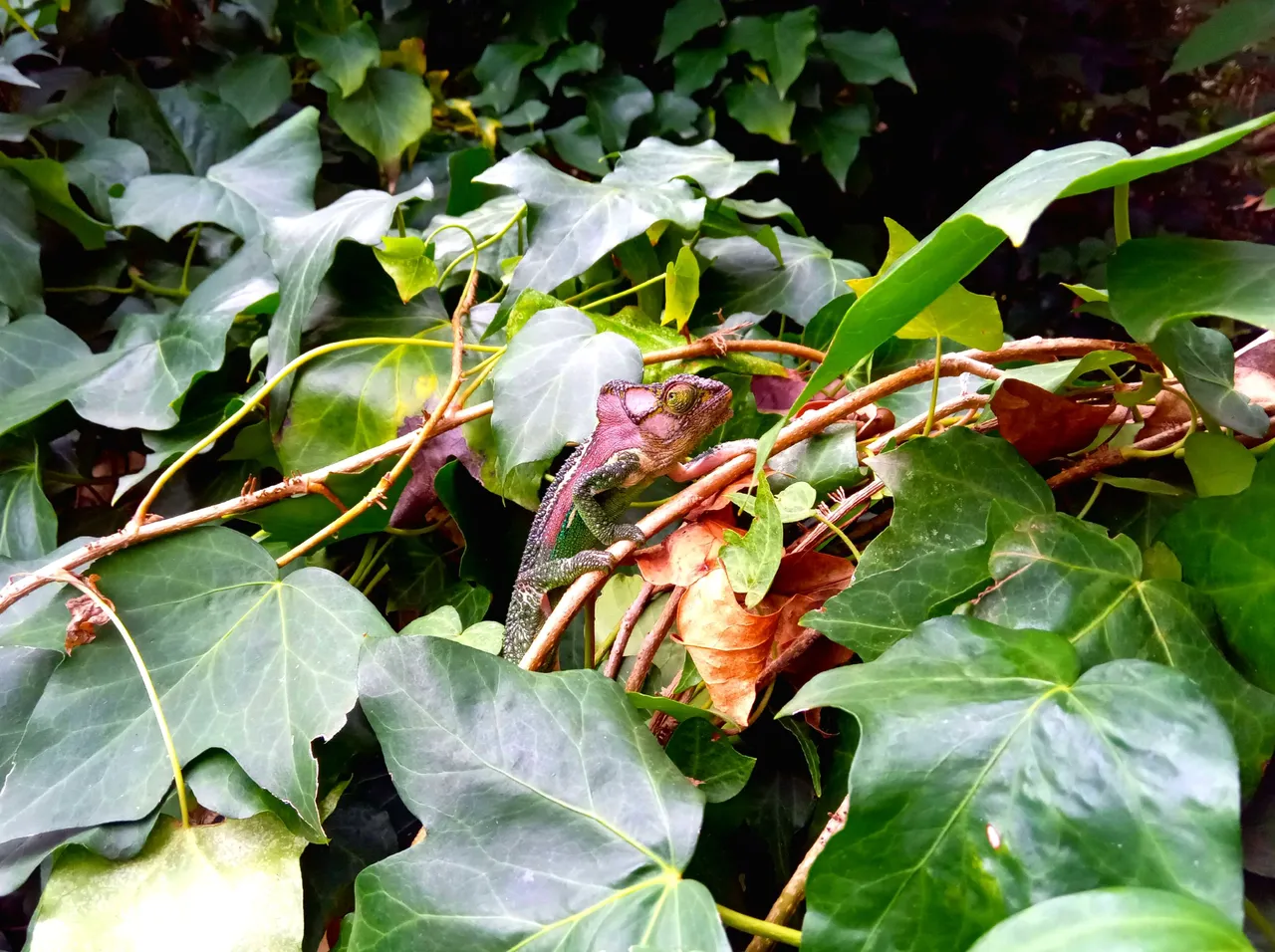
Photos my own, written and published from my mobile device onto the Hive blockchain.